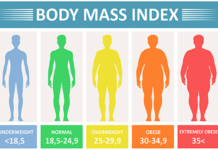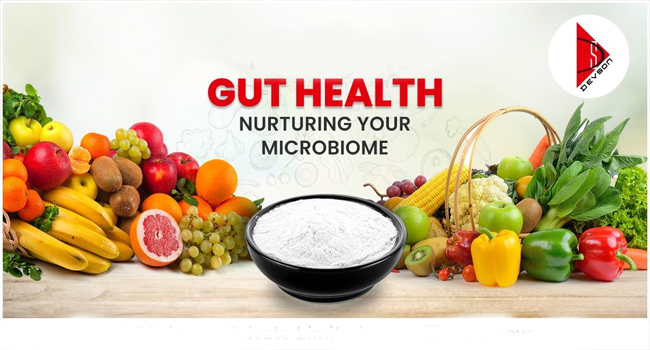Introduction:
Gut fitness is essential to standard well-being, influencing the best digestion, immunity, intellectual fitness, and even weight control. At the core of intestine fitness lies the microbiome, a complicated ecosystem of trillions of microorganisms dwelling in our digestive tract. These microbes play a critical position in retaining a balanced and harmonious surrounding within our gut, impacting various aspects of our health. This complete guide will delve into the essentials of intestine health and explore strategies to nurture and aid a thriving microbiome.
Understanding the Microbiome:
The human microbiome contains various microorganisms, viruses, fungi, and microorganisms, collectively called microbiota. The gut microbiota mainly inhabits the massive gut and plays a pivotal role in digestion, nutrient absorption, and immune characteristics. These microorganisms shape a symbiotic dating with the host, exerting profound consequences on physiological procedures.
Factors Influencing Gut Health:
Several elements affect the composition and variety of the intestine microbiome, such as weight loss plans, lifestyle, genetics, medicines, and environmental exposures. Among these, the the weight loss program is one of the most influential determinants of intestine health. A weight loss plan wealthy in fibre, prebiotics, and fermented ingredients fosters good surroundings for beneficial microorganisms to flourish; even a food regimen excessive in processed ingredients, sugar, and saturated fat can disrupt microbial balance and contribute to intestine dysbiosis.
Nurturing Your Microbiome:
Dietary Interventions:
Fiber-Rich Foods: Fiber serves as a prebiotic, fueling the growth of beneficial microorganisms in the gut. Incorporate fiber-wealthy meals, including culmination, veggies, whole grains, legumes, and nuts, into your food regimen.
Fermented Foods: Fermented ingredients like yoghurt, kefir, sauerkraut, kimchi, and kombucha include probiotics—stay beneficial bacteria—that may beautify intestine health and sell the microbial range.
Polyphenol-Rich Foods: Polyphenols discovered in foods like berries, inexperienced tea, cocoa, and nuts have antioxidant homes and may assist intestine health by modulating the microbiome’s composition.
Limit Processed Foods: Highly processed ingredients, laden with synthetic components, preservatives, and subtle sugars, can negatively affect intestine fitness via selling infection and disrupting microbial stability. Minimize their consumption by choosing complete, unprocessed foods.
Probiotic Supplementation:
Probiotics are live microorganisms that confer health advantages when eaten in adequate amounts. They can assist in refilling and diversifying the gut microbiota, especially after antibiotic use or during digestive distress. Look for notable probiotic supplements containing strains, and visit a healthcare professional for personalized suggestions.
Prebiotic Supplementation:
Prebiotics are non-digestible fibres that serve as food for beneficial microorganisms in the gut. Including prebiotic-rich meals, which include garlic, onions, leeks, chicory root, and asparagus, in your weight loss program can stimulate the growth of valuable microbes and help a healthy microbiome.
Stress Management:
Chronic pressure can adversely affect gut fitness by changing intestine motility, increasing intestinal permeability, and disrupting the microbiome’s composition. Incorporate stress-discount strategies such as mindfulness meditation, deep breathing sporting events, yoga, or time in nature to sell universal well-being and help a healthy intestine.
Adequate Sleep:
Sleep is vital in maintaining intestine fitness, with disrupted sleep patterns related to microbiome alterations and multiplied susceptibility to gastrointestinal disorders. Aim for 7-nine hours of exceptional sleep in step with a night to support the highest quality intestine characteristics and microbial balance.
Physical Activity:
Regular workouts have been shown to positively influence gut health by promoting microbial variety, decreasing irritation, and enhancing intestine motility. Engage in mild-intensity cardio workout, energy training, or yoga to guide a healthful gut microbiome.
Avoiding Antibiotic Overuse:
While antibiotics are crucial for treating bacterial infections, their indiscriminate use can disrupt the sensitive balance of the intestine microbiome, leading to dysbiosis and capacity health effects. Use antibiotics judiciously and only while essential, and speak opportunity treatment options together with your healthcare company whilst appropriate.
Hydration:
Adequate hydration is essential for keeping gut fitness and selling normal bowel moves. Aim to drink plenty of water throughout the day to support digestion, nutrient absorption, and overall well-being.
Regular Bowel Movements:
Maintaining regular bowel movements is critical for intestine fitness, as it prevents constipation and eliminates waste and pollution from the frame. To support healthy digestion and bowel function, ensure a good enough nutritional fibre intake, live hydrated, and engage in everyday bodily pastimes.
Diversity in Diet:
Consuming various foods is helpful for intestine fitness because it introduces several vitamins and compounds that could nourish extraordinary microbial species. Aim to include a rainbow of culmination, veggies, entire grains, legumes, nuts, seeds, and spices in your diet to provide a large spectrum of nutrients and sell the microbial variety.
Mindful Eating:
Practising conscious eating includes listening to the sensory level of consuming, which consists of the taste, texture, and aroma of meals and the sensations of starvation and fullness. By slowing down and savouring every chew, you could decorate digestion, optimize nutrient absorption, and foster a healthy dating with meals, which may positively impact gut fitness.
Limiting Artificial Sweeteners:
Artificial sweeteners, generally determined in weight loss program sodas, sugar-loose gum, and processed meals, were linked to changes in intestine microbiota composition and features. Limit your consumption of artificial sweeteners and choose herbal options like stevia, monk fruit, or small amounts of honey or maple syrup whilst sweetening meals and drinks.
Incorporating Gut-Supportive Herbs and Spices:
Certain herbs and spices possess antimicrobial, anti-inflammatory, and digestive properties that could aid intestine health. Consider incorporating herbs like ginger, turmeric, peppermint, fennel, and garlic into your cooking to sell digestion, soothe gastrointestinal pain, and support a wholesome microbiome.
Regular Check-u. S.A.And Monitoring:
Regularly monitoring your intestine fitness through habitual check-united States of America assessments can help you perceive any ability issues or imbalances early on. Consult a healthcare professional, including a gastroenterologist or registered dietitian, for customized suggestions and screenings to optimize your intestine health.
Environmental Considerations:
Environmental elements, including exposure to pollutants, pollution, and insecticides, can impact intestine fitness by influencing microbial variety and function. Minimize your publicity of ecological contaminants by selecting natural produce, filtering your water, reducing using chemical-based totally household merchandise, and supporting sustainable practices that shield environmental and human health.
Seeking Professional Guidance:
Suppose you enjoy continual digestive signs, including bloating, gasoline, stomach ache, or abnormal bowel movements. In that case, you seek steering from a healthcare professional to pick out capacity underlying troubles and increase an individualized remedy plan. Conditions such as irritable bowel syndrome (IBS), inflammatory bowel ailment (IBD), and small intestinal bacterial overgrowth (SIBO) can also require specialized care and management.
Conclusion:
Nurturing your microbiome is fundamental to promoting surest intestine fitness and assisting essential well-being. Adopting a holistic method encompassing dietary interventions, supplementation, strain control, good enough sleep, bodily pastime, and aware antibiotic use may cultivate a thriving microbial community within your gut. Prioritize whole, nutrient-dense foods, contain fermented meals and probiotics in your weight loss plan and include lifestyle practices that help a balanced microbiome. Remember, a healthful intestine lays the muse for a colourful and resilient frame and mind.






















